Have you ever been hated or discriminated against?
By Rachel West-Captain, 2021 Monica Clare Research Fellow. | 1 March 2023
Guest blogger: Rachel West-Captain - 2021 Monica Clare Research Fellow
Bindi West and Terrisa Captain, my Great Grandparents, each secured one of these ‘passports’, that were issued to Aboriginal people, under Governmental Exclusion, Control, Segregation and Assimilation Policies.
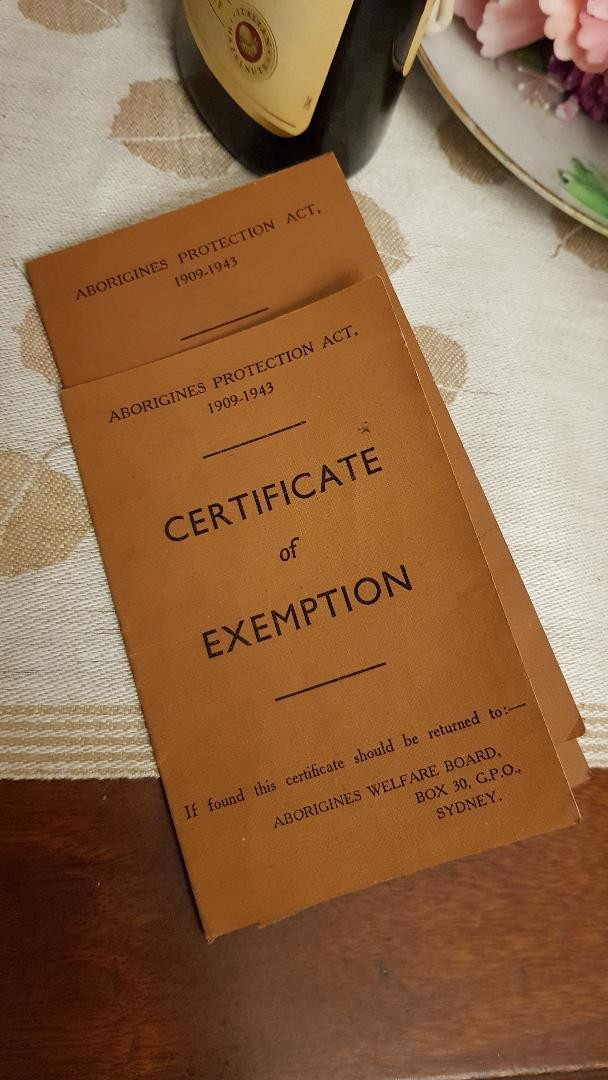
The Certificate of Exemption Passport, issued by Aborigines Welfare Board. Photo Courtesy Rachel West-Captain.
The Aborigines Welfare Board allowed people to apply for ‘Certificates of Exemption’ in NSW from 1943. The exemption certificate gave Aboriginal people access to previously denied benefits and everyday freedoms and choices such as access to education, employment, health services, housing and old age pensions as well as access to public venues like swimming pools.
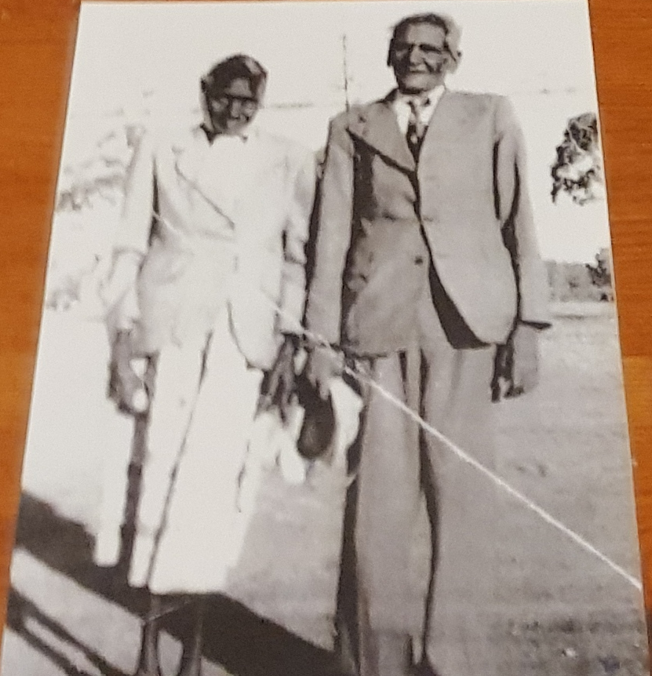
My Great Grandmother Terrisa Captain and Great Grandfather Bindi West applied for the exemption so they could access an old age pension. Photo Courtesy Rachel West-Captain.
Indigenous people were judged by government administrators as to whether they would be deemed ‘worthy’ of being exempt from the restrictive legislation in the Aborigines Protection Act.
Terrisa Captain and Bindi West applied for their Certificate of Exemption in 1956.
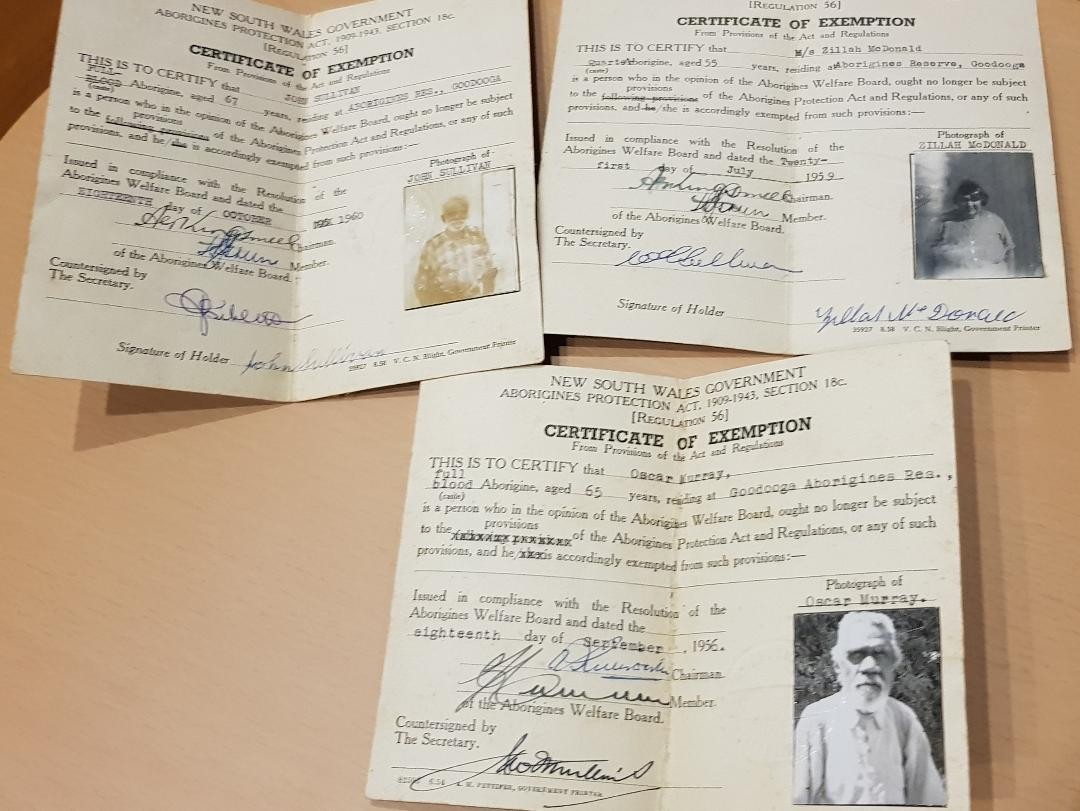
The Certificates of Exemption for Goodooga Residents John Sullivan, Zillah McDonald and Oscar Murray, which were held by Goodooga store owners, The Sheldon’s. Photo Courtesy Rachel West-Captain.
People had to always carry the certificate to prove their status at any time and to any one; and it could be withdrawn at any time, as written in their letter of ‘congratulations’;
“This Certificate remains in force permanently, subject to your continued good standards of citizenship.”
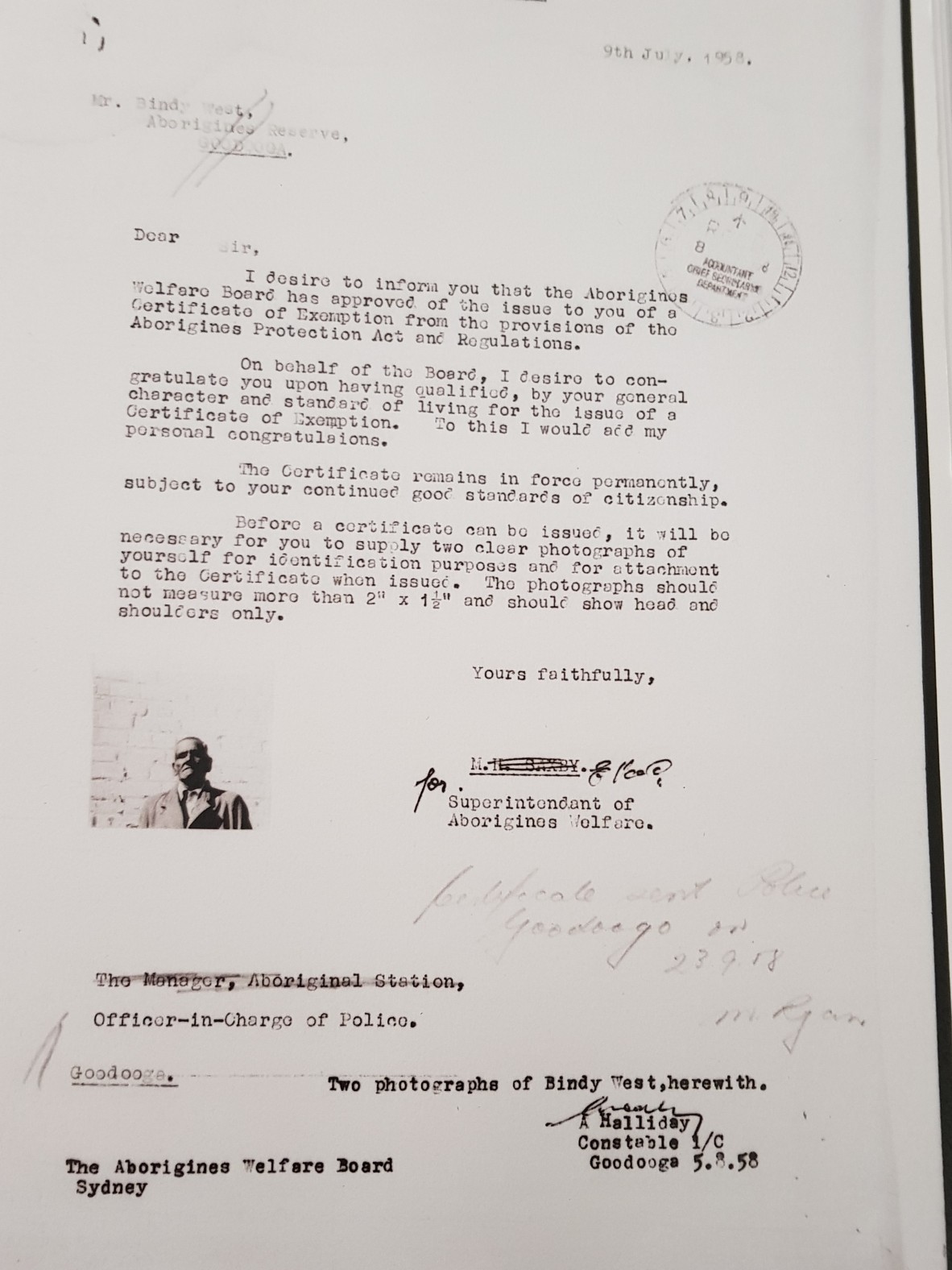
Bindi West’s Approval Letter for the Issue of a Certificate of Exemption from the Aborigines Protection Act. Apparently he was deemed worthy by government officials. Photo Courtesy Rachel West-Captain.
“Before a certificate can be issued, it will be necessary for you to supply two clear photographs of yourself for identification purposes.”
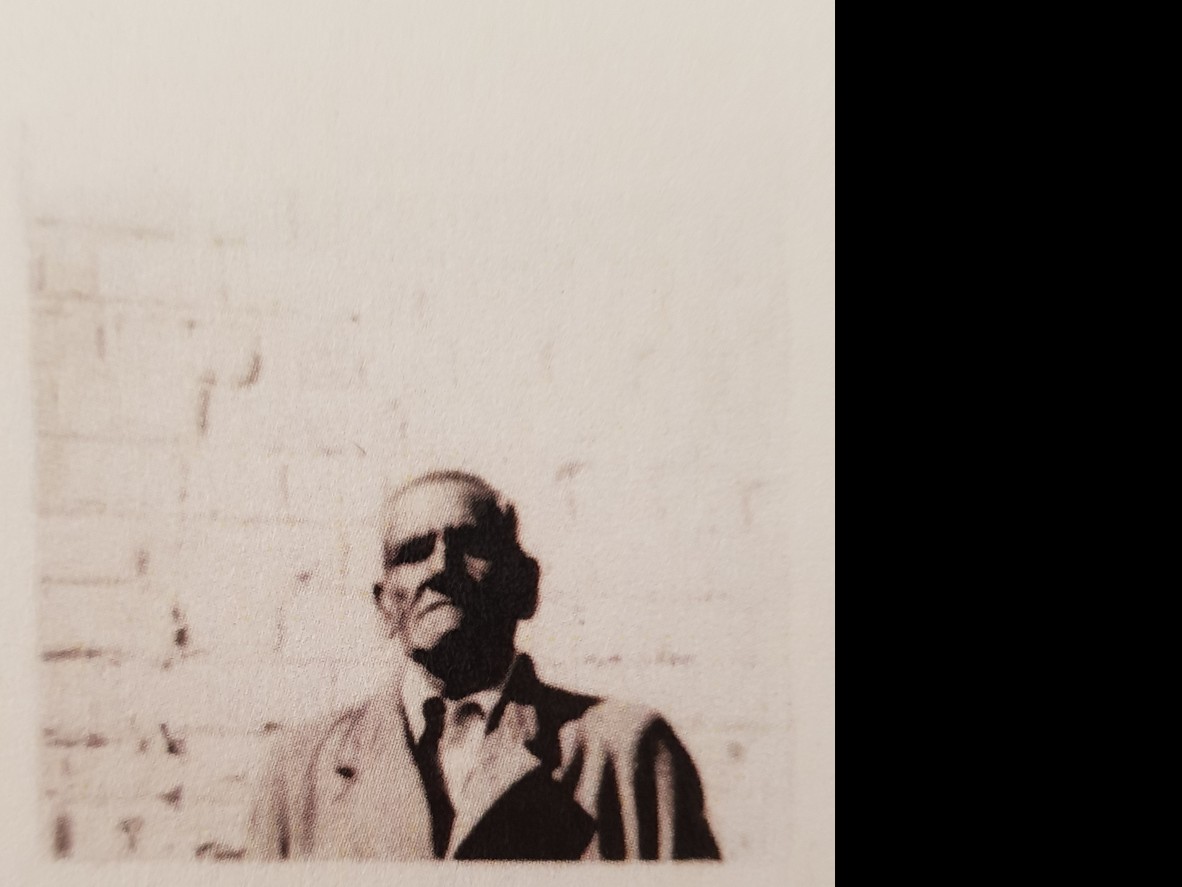
The exemption photo of Bindi West for his passport to be a citizen of Australia. Photo Courtesy Rachel West-Captain.
The issue of the certificate of exemption meant that Aboriginal people were not supposed to have contact with non-exempt Aboriginal people anymore. It meant they were not to speak their language, and they were to renounce their culture.
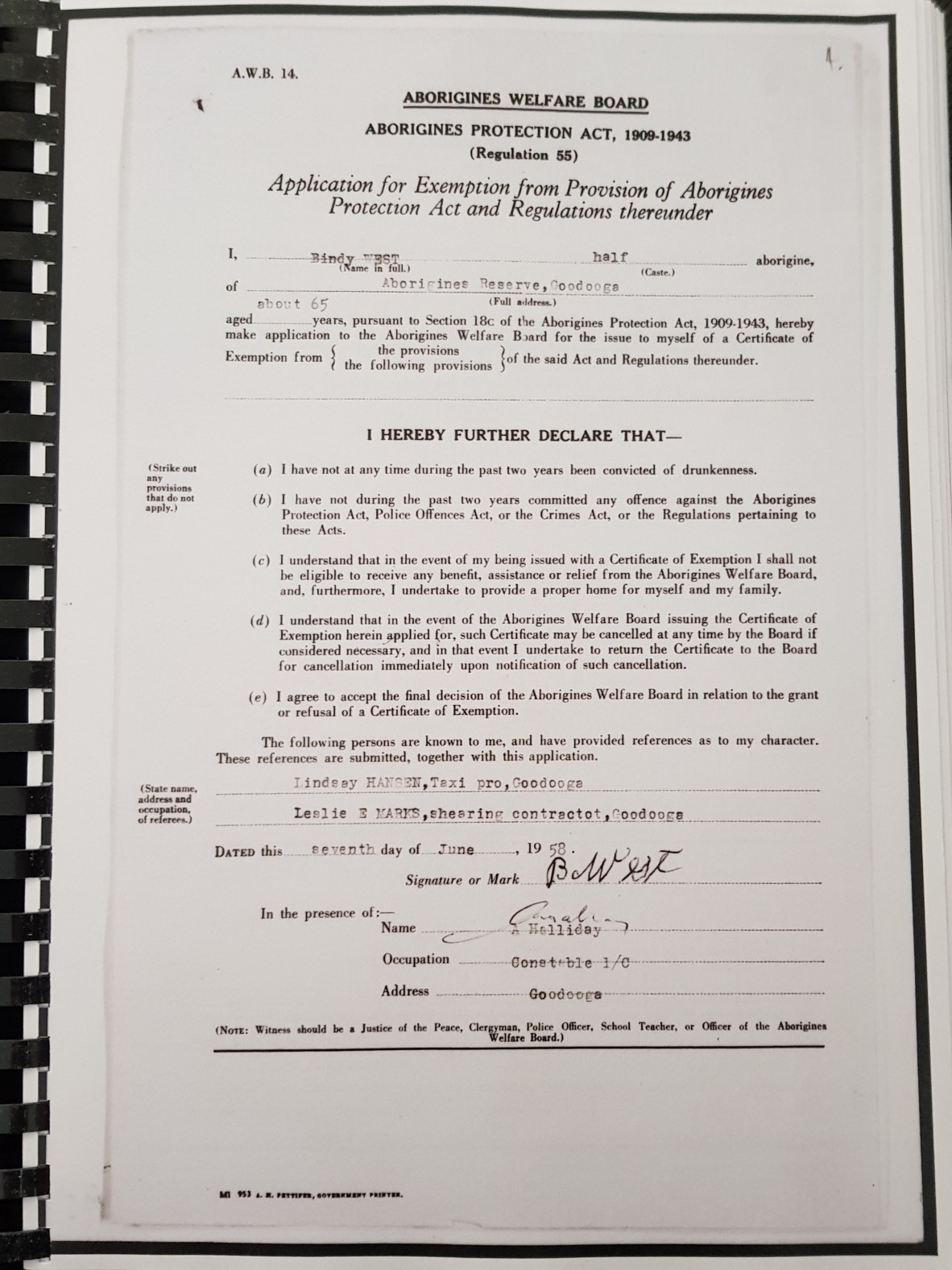
The document that had to be signed by my Great Grandfather, declaring agreement to the terms of the issue of the Exemption. My Great Grandfather signing away his right to practice his culture, on the 7th day of June, 1958. Photo Courtesy Rachel West-Captain.
Many were ostracised by their family for rejecting their culture. They accepted the humiliating personal cost of compliance and carried a card that held shameful connotations. The certificate of exemption was also known as a ‘dog licence’, ‘a dog tag’ or ‘beer tickets’, and many refused to apply for a licence to become an ‘Australian citizen’, to be recognised as being ‘human’.
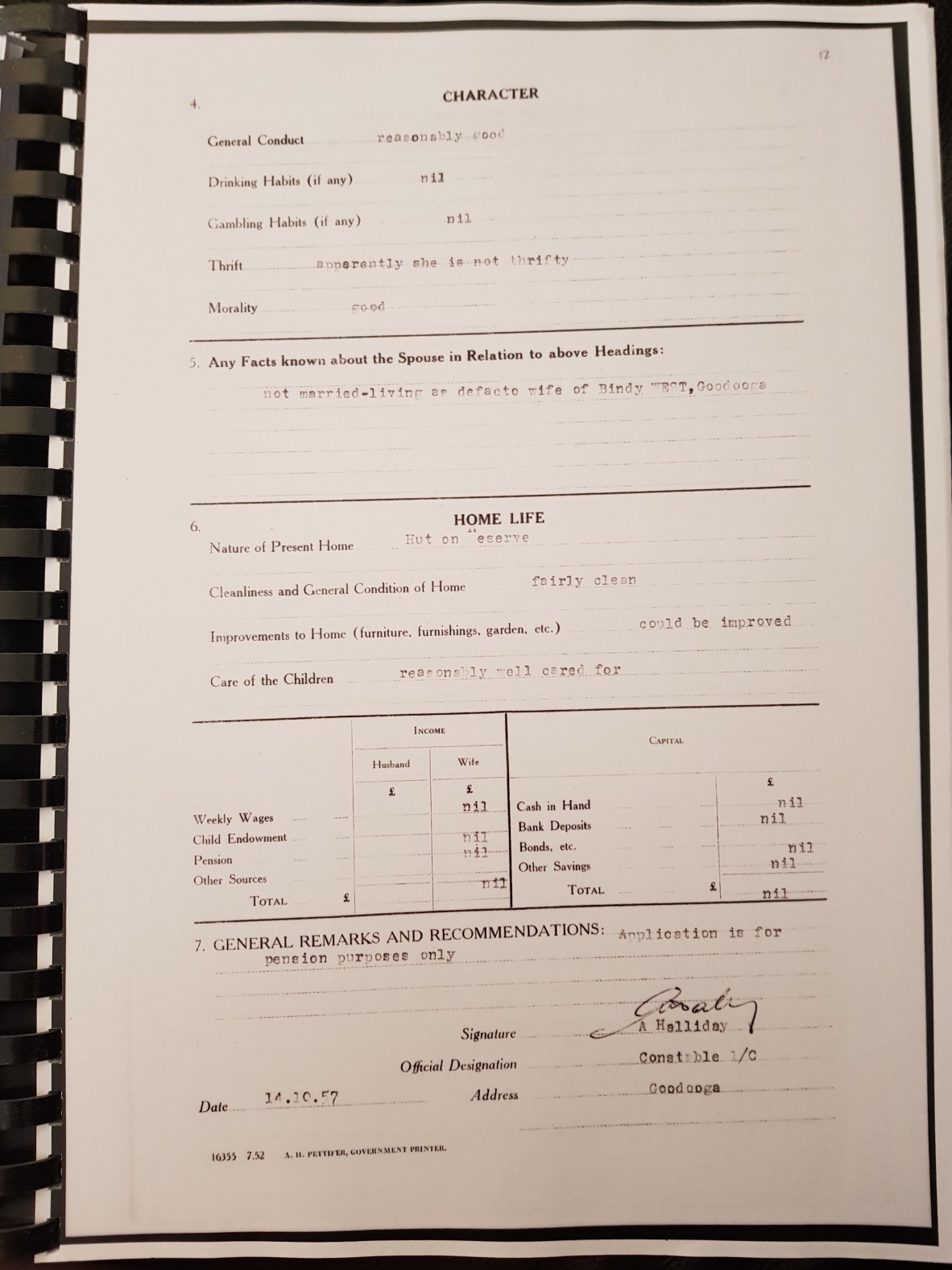
The process and judgement my Great Grandmother underwent in the application process to obtain a Certificate of Exemption. Photo Courtesy Rachel West-Captain.
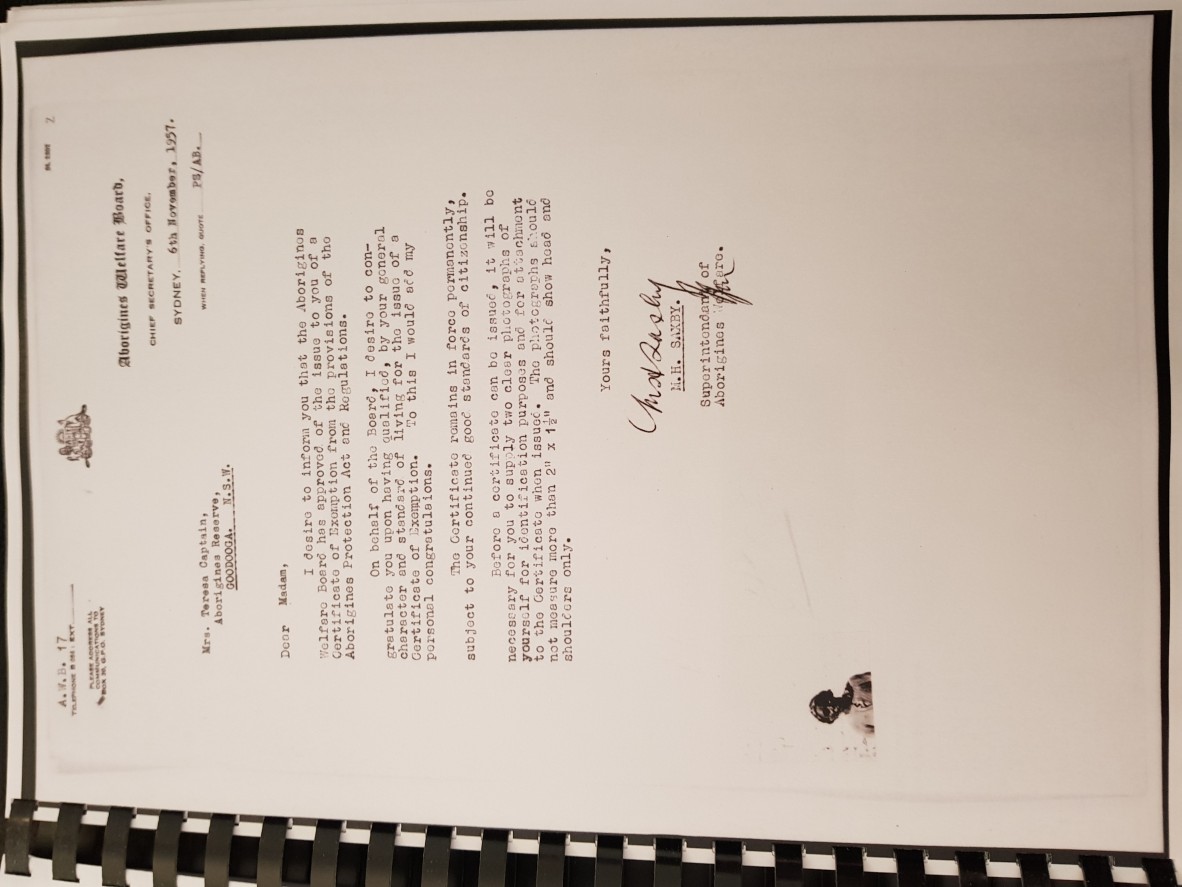
Terrisa Captain’s Approval Letter for the Issue of a Certificate of Exemption from the Aborigines Protection Act. She was also deemed worthy by government officials.
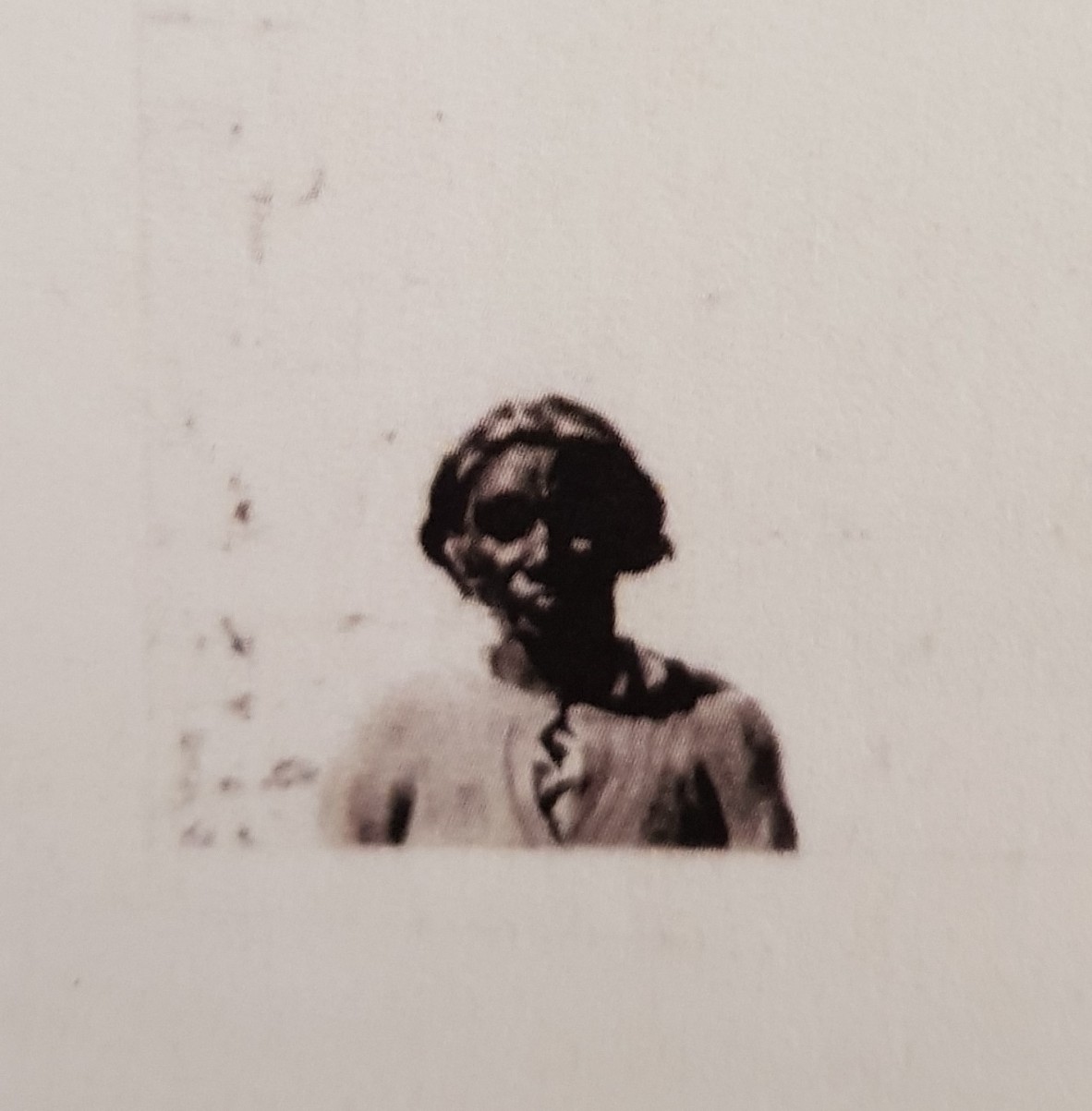
The exemption photo of Terrisa Captain, for her passport to be a citizen of Australia. Photo Courtesy Rachel West-Captain.
The issue of the certificate of exemption meant that Aboriginal people were not to speak their language. Thankfully, my Great Grandmother had already provided the first nations language of the Kooma people, the Guwamu language, to linguist Ian Sims in 1955, prior to applying for the Exemption from the Aborigines Act in 1956, which meant she was now forbidden from speaking her native tongue.
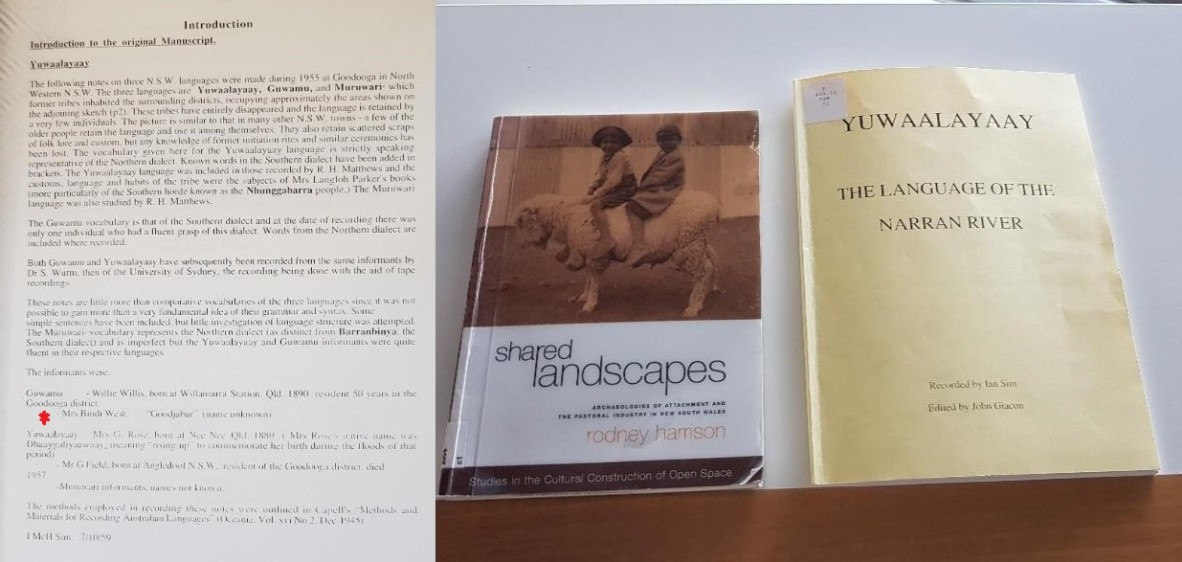
Two books capturing my Great Grandparents regarding their participation in traditional Muruwari ceremony and language. Source John Oxley Library, State Library of Queensland (Both Books).
The informants for Guwamu language which was recorded by Ian Sim in Goodooga in 1955 were Willie Willis, my Great Great Great Uncle, and Mrs Bindi West, Goodjabar, Terrisa Captain, My Great Grandmother.
Bindi West and the West Family were written about in the publication Shared Landscapes by Rodney Harrison. On page 202:
“One further important aspect of Dennawan’s spirituality centres around the existence of a corroboree ground on the site, where dances and ceremonies were held on the former reserve. The corroborees are one of the things that people first mention about Dennawan".
The former settlement still seems to echo with the sound of these dances and songs of it’s former residents: “Auntie Ruby was singing, and Old Uncle Gudgibar was singing then, and Old Bindie West, they were the singers. Old Gudgibar hit the boomerangs [together] and sang. And he was very good at it too. They used to do the paliyinaa and the karrampara dances.”
Terrisa Captain was an informant for the Guwamu (Kooma) language in the publication Yuwaalayaay, The Language of the Narran River, by Ian Sim.
Bindi West was a key figure in Murruwarri ceremonial life at Dennawan, as captured in the publication Shared Landscapes by Rodney Harrison. Both of my Great Grandparents who were so influential in their culture, were no longer allowed to participate in their traditions and their language upon grant of their exemption passport.
These were the character references written about Bindi West and Terrisa Captain in support of their application for exemption.
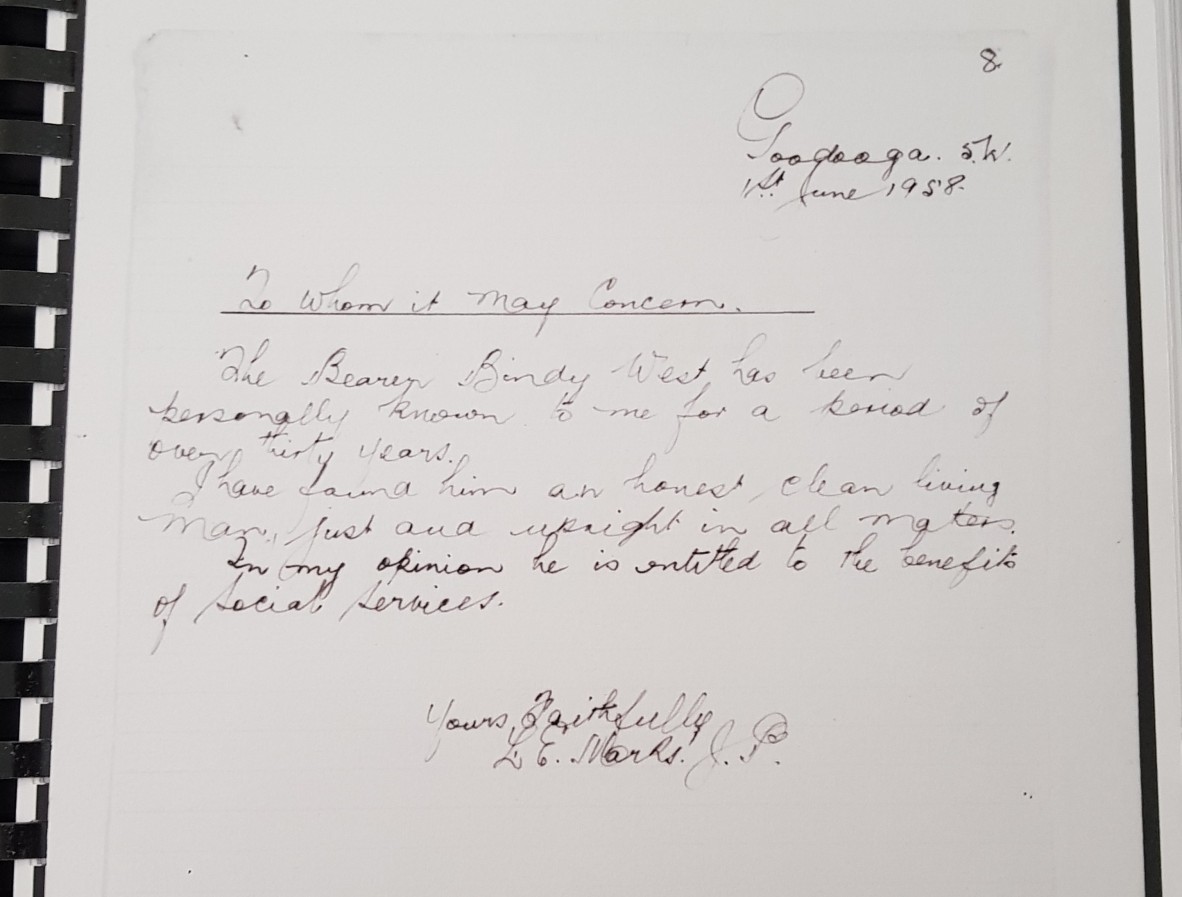
Character reference supplied by Leslie E Marks, Shearing Contractor, Goodooga, for Bindi West. Photo Courtesy Rachel West-Captain.
“… Bindy West has been personally known to me for a period of over thirty years.I have found him to be an honest, clean living man, just and upright in all matters. In my opinion he is entitled to the benefits of social services.”
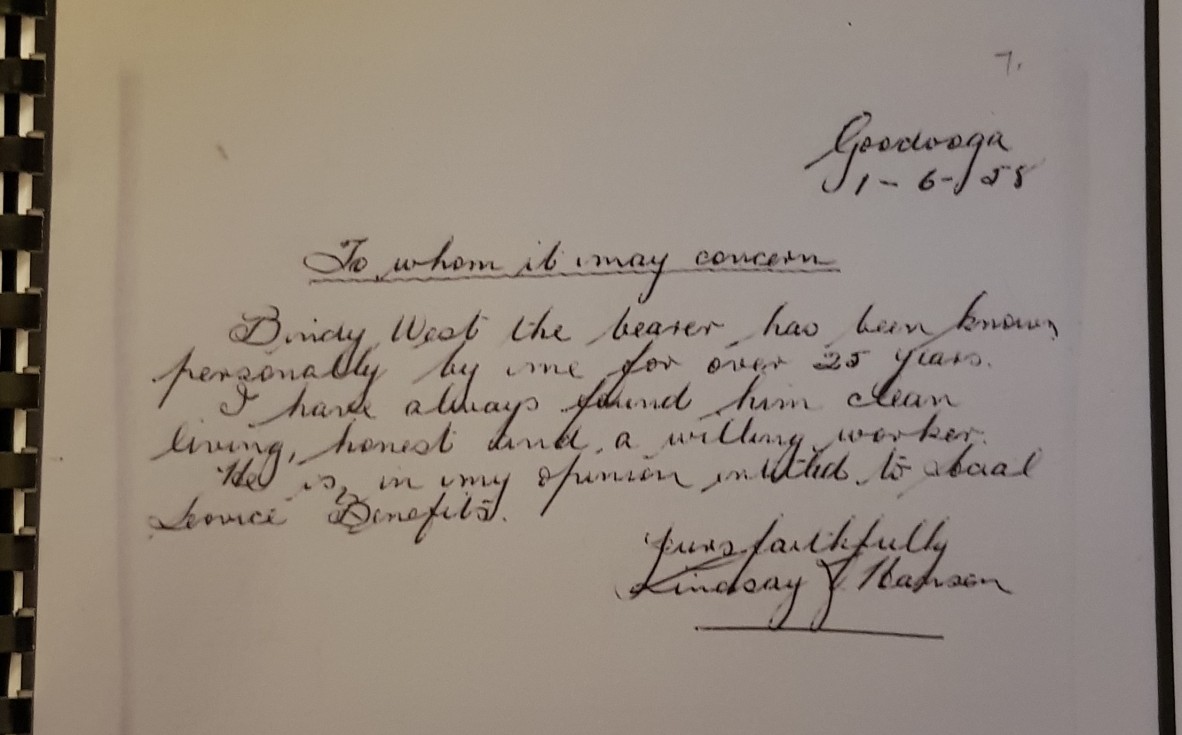
Character reference supplied by Lindsay Hansen, from Taxi Pro, Goodooga, for Bindi West. Photo Courtesy Rachel West-Captain.
“Bindy West the bearer, has been known personally by me for over 25 years. I have always found him clean living, honest and a willing worker. He is, in my opinion, entitled to social service benefits.”
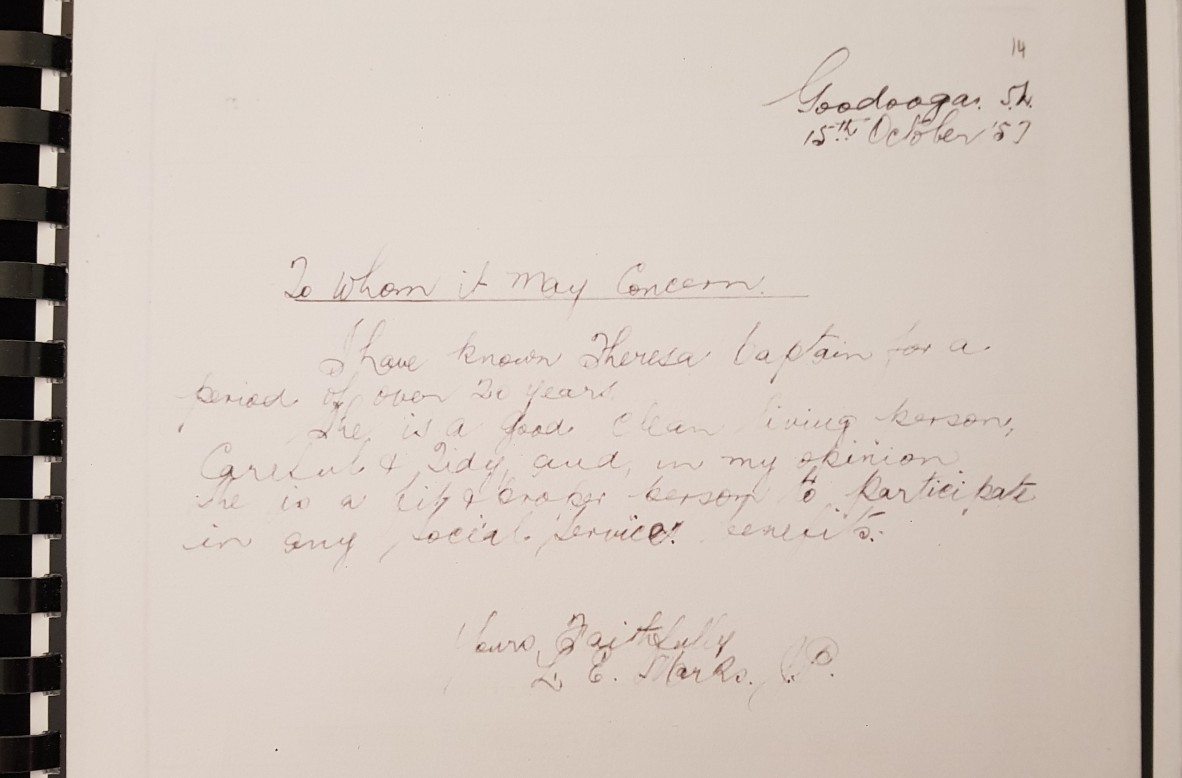
Character reference supplied by Leslie E Marks, Sheering Contractor, Goodooga, for Terrisa Captain. Photo Courtesy Rachel West-Captain.
“I have known Theresa Captain for a period of over 20 years. She is a good, clean living person, careful and tidy, and, in my opinion she is a fit & proper person to participate in any social services benefits.”
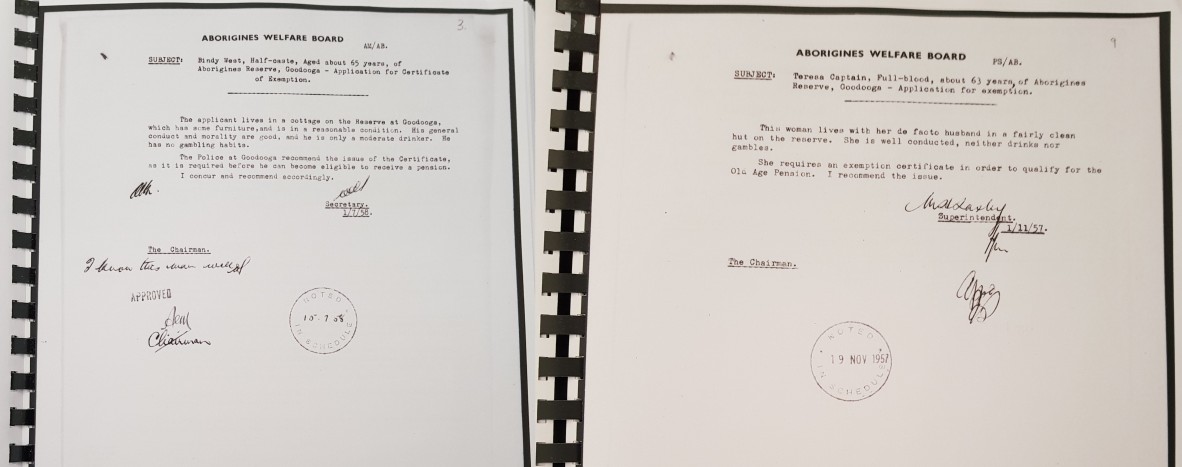
Some more of the judgement my great grandparents underwent in order to obtain their Certificate of Exemption. Photo Courtesy Rachel West-Captain.
The policy was still in operation in some places until the 1970’s.
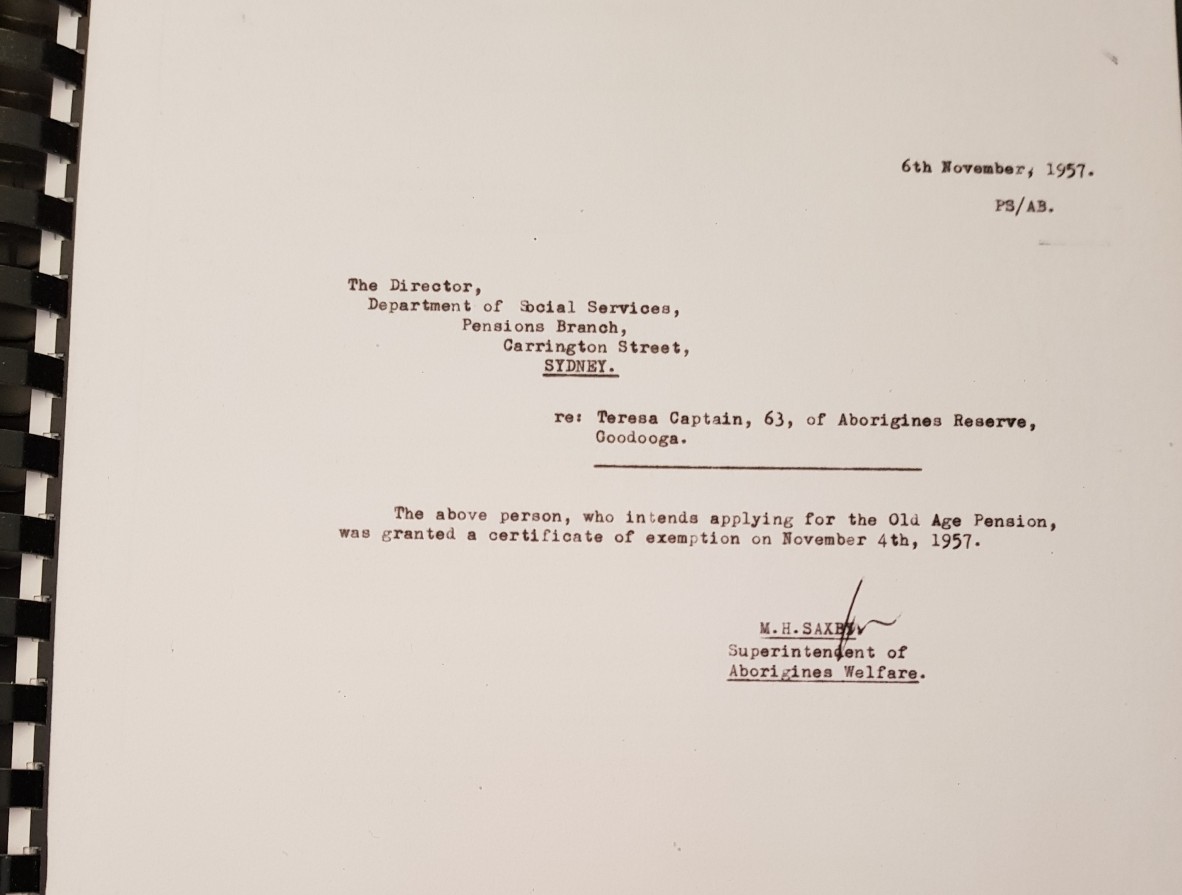
Letter informing the Governmental Department of Social Services that my Great Grandmother had been granted her certificate of Exemption. Image courtesy Rachel West-Captain.
The Aboriginal Exemption Policy inflicted harm across many generations.
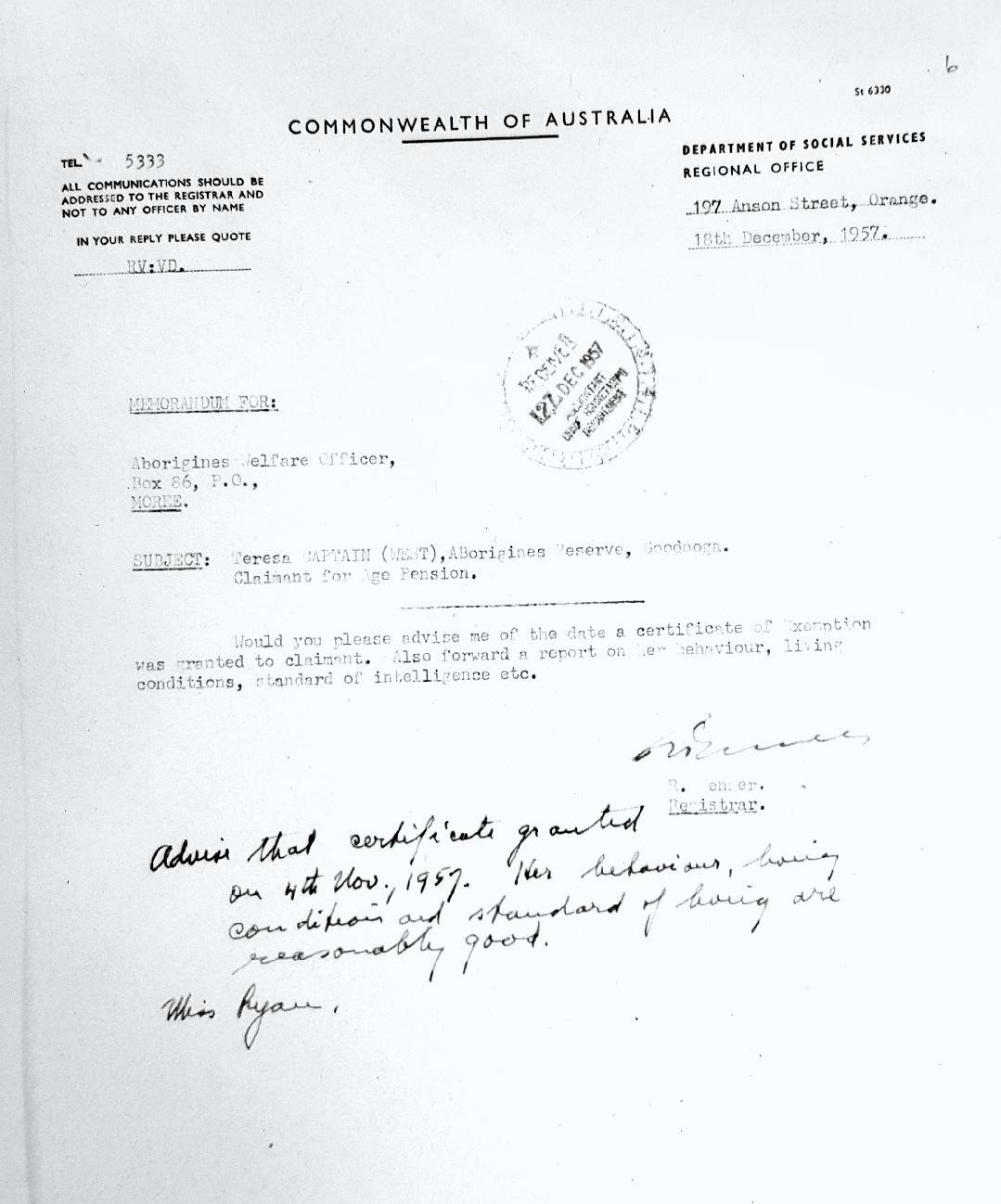
Department requesting information regarding my Great Grandmother’s Behaviour and Level of Intelligence. Image courtesy Rachel West-Captain.
Judgement doesn’t stop at receiving the exemption; now the Department wants to know about my Great Grandmother’s ‘behaviour’ and level of ‘intelligence’ in further determination of worthiness in granting an old age pension.
“Her behaviour, living condition and standard of living are reasonably good”.
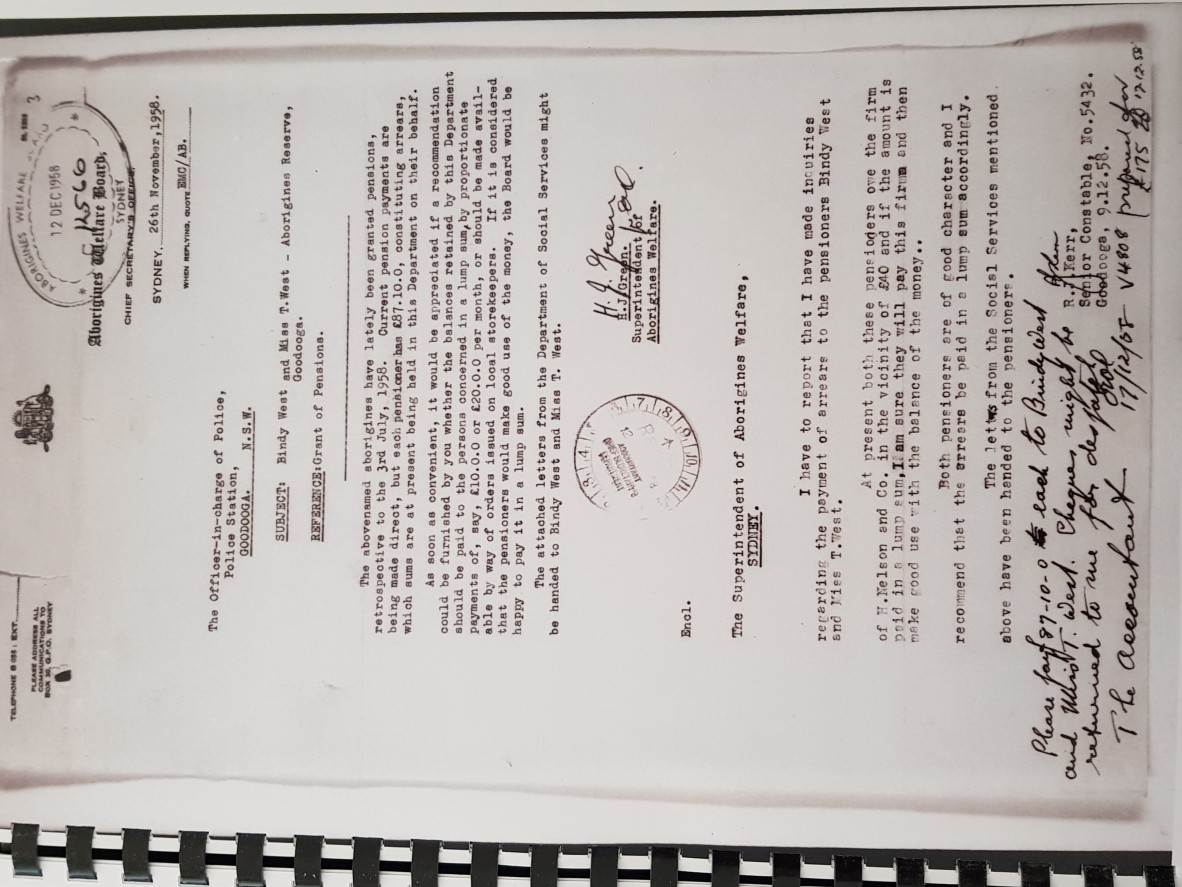
Determination of Grant of Pension, and how the money should be issued, based on judgement of their character. Image courtesy Rachel West-Captain.
This determination re: grant of pension appears to have occurred a year after approval of the exemption (in November 1957), with this letter stating approval of pensions being dated November 1958.
My Great Grandparents were scolded in their letter regarding grant of pension, to ensure they settle their outstanding debt with the Goodooga Store.
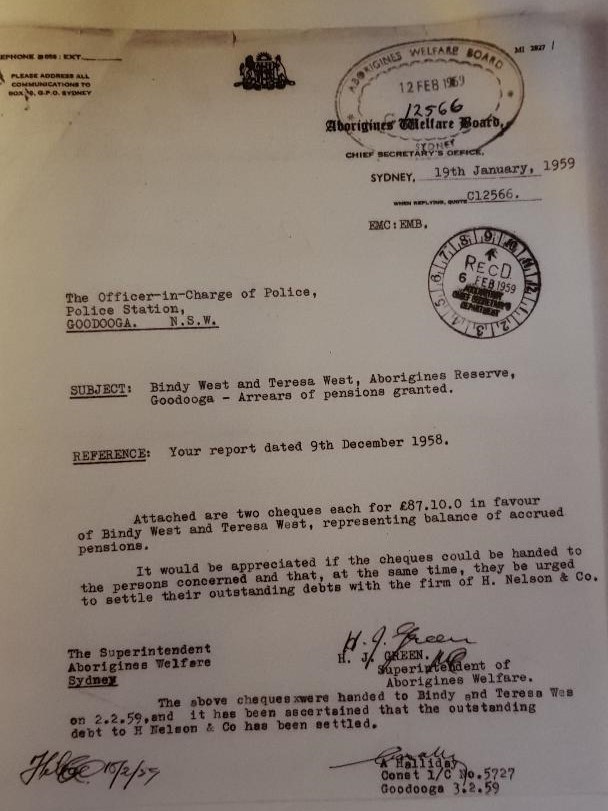
Finally – February, 1959 – Showwwww Meeeeee The Moneyyyyyyyyyyyy. Image courtesy Rachel West-Captain.
The process to obtain their exemption for being Aboriginal, in order to secure an old age pension, was started prior to October 1957, and on February 1959 they were handed cheques, and were able to pay their debt with the local store, that was likely accrued whilst they waited a year for the government to process their application for an old age pension.
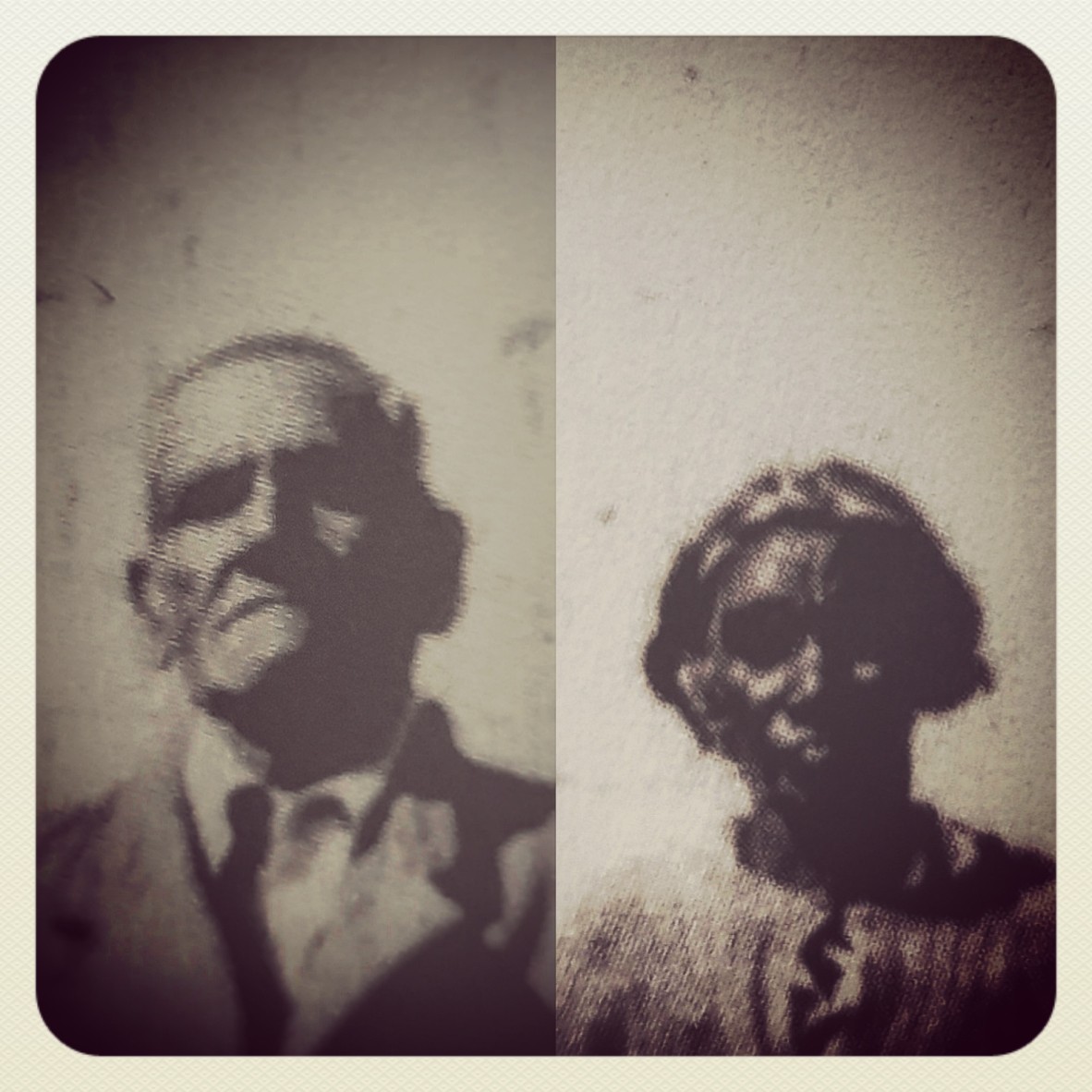
My Great Grandparents, Bindi West from Bollon, Qld and Terrisa Captain from Mitchell, Qld. Photo Courtesy Rachel West-Captain.
Do you think they were hated or discriminated against?
Rachel West-Captain
The Monica Clare Research Fellowship is generously supported by donations to the Queensland Library Foundation.
Commitment statement
This blog contains Aboriginal and/or Torres Strait Islander content, which has been made available in accordance with State Library of Queensland’s Aboriginal and Torres Strait Islander Collections Commitments.
Other blogs by Rachel West-Captain
Interested in First Nations family history, see State Library's website for step-by-step guides and resources for finding information on your family history.
The video below explains further the Certificate of Exemption and what it meant for Aboriginal People. Freedom : a certificate of exemption digital story. 'Freedom Then, Freedom Now' digital stories', John Oxley Library, State Library of Queensland.
Freedom : a certificate of exemption digital story. 'Freedom Then, Freedom Now' digital stories, John Oxley Library, State Library of Queensland.
Comments
Your email address will not be published.
We welcome relevant, respectful comments.